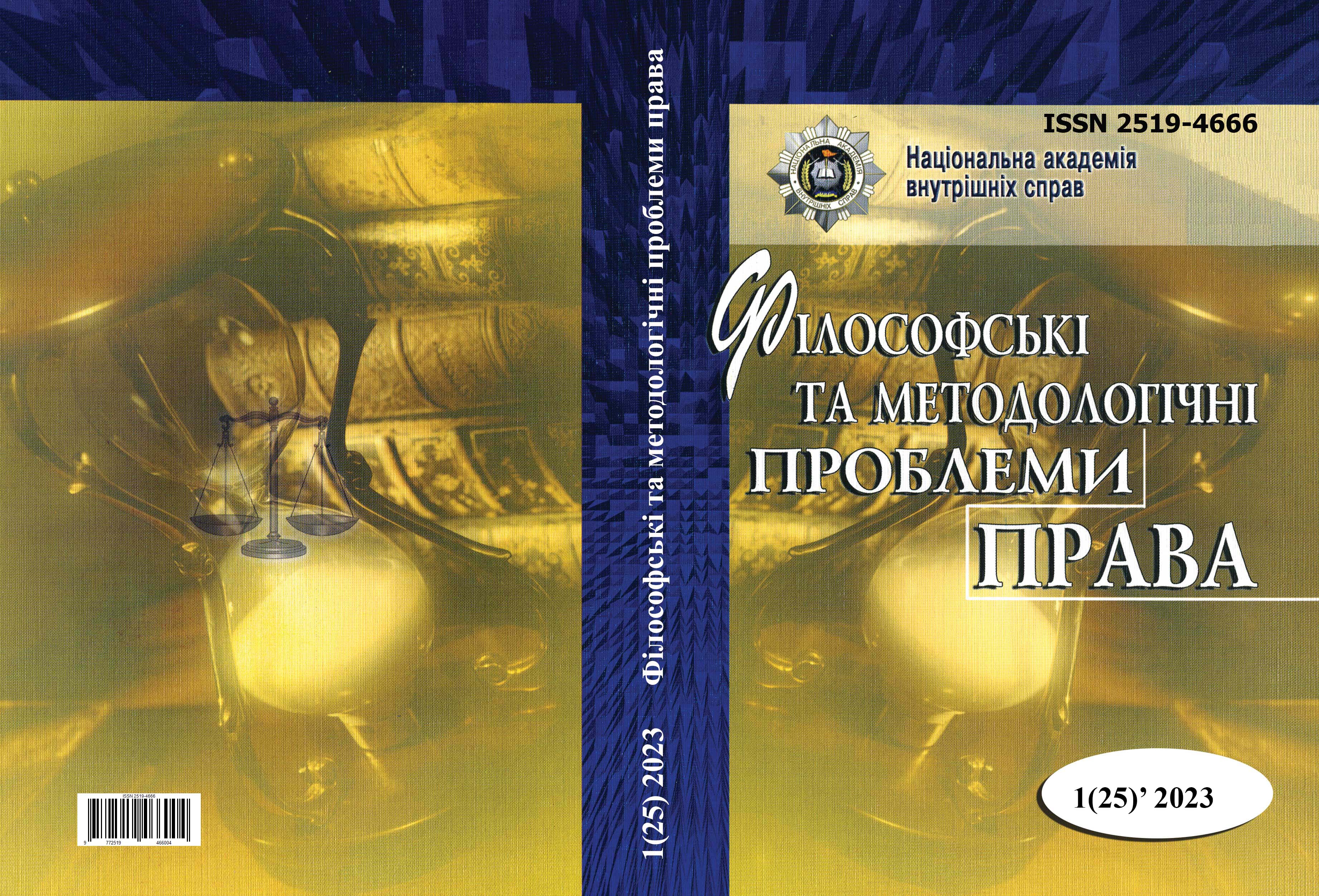Problem of Establishing the Truth during Criminal Proceedings
Abstract
Abstract. The purpose of the article is to search for objective criteria, on the basis of which it is possible to conclude whether establishing the truth is currently the task of the modern criminal process, or whether it is supplanted by the principle of competition. It is substantiated that the search for an answer to the decided question is impossible without an analysis of the means of proving and establishing the truth available in criminal procedural legislation, as well as without taking into account the provisions of modern theories of understanding the truth, including the "postmodern" theory, which denies the existence of truth as such. The article uses the method of comparative analysis to identify the main sources of contradictions that arise when justifying the necessity or, conversely, the impracticality of establishing the truth in criminal proceedings, and the method of scientific synthesis to determine the main aspects of the problem of establishing the truth and assigning them to a certain group. The scientific novelty of the proposed approach lies in the need for a comprehensive analysis of the problem of establishing the truth in criminal proceedings by dividing it into three aspects: normative, methodological and philosophical. It was concluded that the search for an answer to the question of whether it is possible and necessary to establish the truth in a criminal trial, through the prism of only one or two of the mentioned aspects, usually does not lead to a result. Only a positive answer to the specified question within the framework of each of the three proposed aspects of the problem of establishing the truth allows one to make a reasonable statement about its existence and the need to establish it
Keywords: criminal process; truth; the principle of competitiveness; postmodernism; post-truth; the narrative
Downloads
References
Бандура О. Гносеологія права як складова філософії права (загальні думки). Філософські та методологічні проблеми права. 2018. № 1–2. С. 25–33. URL: http://nbuv.gov.ua/UJRN/Philos_2018_5_8.
Beccaria Ch. On Crimes and Punishments and Other Writings. University of Toronto Press, 2009. 182 p.
Borysenko I., Bululukov O., Baranchuk V., Prykhodko V. The modern development of new promising fields in forensic examination. Journal of Forensic Science and Medicine. 2021. Vol. 7. P. 137–144. doi: 10.4103/jfsm.jfsm_66_21.
Бистрицький Є. Екзистеційна істина і постправда. Філософська думка. 2018. № 5. С. 54–70.
Гвоздік О. Критерії достатності доказів. Філософські та методологічні проблеми права. 2019. № 2 (18). С. 63–70. doi: https://doi.org/10.33270/02191802.63.
Гвоздік О. Логічні основи організації слідчого експерименту. Філософські та методологічні проблеми права. 2022. № 1 (23). С. 13–19. doi: https://doi.org/10.33270/01222302.13.
Klymchuk M., Marko S., Priakhin Ye., Stetsyk B., Khytra A. Evaluation of forensic computer and technical expertise in criminal proceedings. Amazonia Investiga. 2021. Vol. 10. No. 38. P. 204–211. doi: https://doi.org/10.34069/AI/2021.38.02.20.
Котюк О. Судова гносеологія: проблеми методології та практики : автореф. дис. … д-ра юрид. наук : 12.00.09 / Київський національний університету імені Т. Шевченка. Київ, 2008. 30 с.
Нор В. Істина у кримінальному судочинстві: ідея, догма права, реалізація. Часопис Національного університету «Острозька академія». 2010. № 2. С. 1–14. (Серія «Право»). URL: https://lj.oa.edu.ua/articles/2010/n2/10nvtdpr.pdf.
Post-truth | Definition of post-truth in English by Lexico Dictionaries. Oxford Advanced Learner’s Dictionary. URL: https://www.oxfordlearnersdictionaries.com/definition/english/post-truth.
Шаптала Н. Психологічний зміст доказування у конституційному судовому процесі.
Вісник Конституційного Суду України. 2018. № 6. С. 100–103. URL: http://nbuv.gov.ua/UJRN/Vksu_2018_6_14
Sumbarova M. Aspects of Tactics of Investigative Experiment in Criminal Procedure of Latvia. Socrates. 2015. Vol. 2. No. 2. P. 84–91. doi: https://doi.org/10.25143/SOCR.02.2015.2.
Тертишник В. Істина «поза розумним сумнівом»: проблеми та колізії доказового права. Актуальні проблеми вітчизняної юриспруденції. 2017. № 2. Т. 1. С. 116–120.
Тягло О. Про стандарти доказування. Форум права. 2018. № 1. С. 88–94. doi: http://doi.org/10.5281/zenodo.1239007.
Вапнярчук В. Сутність істини у кримінальному процесі України. Закон та життя. 2013. № 9/2. С. 53–56. URL: http://www.legeasiviata.in.ua/archive/2013/9-2/14.pdf.
Вілбер К. Трамп і епоха постправди. Львів : Terra Incognita. 2019. 135 с.
Abstract views: 272 PDF Downloads: 754
Copyright (c) 2023 Philosophical and Methodological Problems of Law

This work is licensed under a Creative Commons Attribution-NonCommercial-NoDerivatives 4.0 International License.
- Authors reserve the right to authorship of their own work and transfer to the magazine the right of the first publication of this work under the terms of the Creative Commons Attribution License, which allows other persons to freely distribute published work with mandatory reference to authors of the original work and the first publication of an article in this magazine.
- Authors have the right to enter into separate additional agreements on non-exclusive dissemination of the work in the form in which it was published in the journal (for example, to post an article in the institution's repository or to publish as part of a monograph), provided that the link to the first publication of the work in this journal is maintained.
- The journal's policy allows and encourages the posting of articles by authors on the Internet (for example, in electronic storehouses of institutions or on personal websites), both before the submission of this manuscript to the editorial office and during its editorial processing, as this contributes to the creation of a productive scientific discussion and positively affects the efficiency and dynamics of citing the published work.




